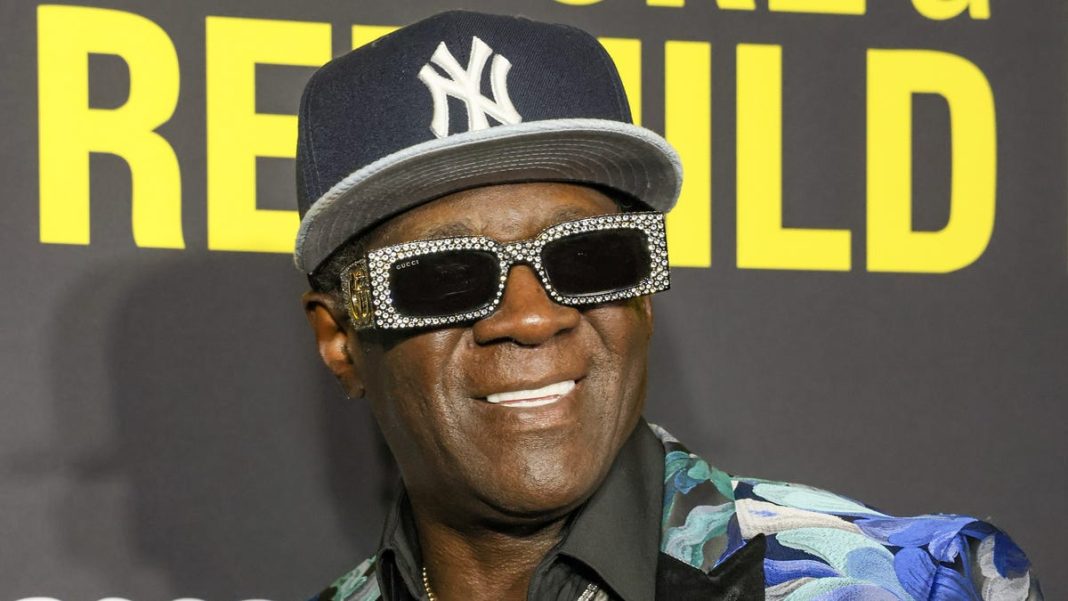Flavor Flav Supports Selena Gomez After Tearful Video: ‘Many Are Quick to Attack’
Flavor Flav has stepped in to defend Selena Gomez after the singer faced backlash for an emotional video where she expressed her distress over deportations and raids carried out by U.S. Immigration and Customs Enforcement (ICE).
On Monday, the rapper expressed his support, stating he was “Team Selena Gomez,” following the actress and singer’s decision to share—and then remove—a video in which she cried in response to President Donald Trump’s actions to fulfill his campaign promise of mass deportations for undocumented individuals in the U.S.
“She’s always so courageous to share her truth,” Flav stated on X (formerly known as Twitter), adding that “many are so quick to bully her.”
In a video that was reportedly shared on her Instagram story earlier this week and later deleted, the Golden Globe nominee teared up while apologizing to her audience, saying she was saddened by how “All my people are getting attacked.”
“The children—I just don’t understand,” the 32-year-old actress shared, based on screen recordings circulating on social media, including by @PopBase. “I’m really sorry; I wish I could do something for the kids. I don’t know what to do. I’ll do my best, I promise.”
Selena Gomez and Politician Sam Parker Disagree on Social Media Regarding Deportation
In the wake of her video, U.S. Senate candidate Sam Parker, who previously ran—and lost—in Utah, took to X to suggest that the Texas-born singer should be deported.
“Selena Gomez chooses illegals over America because she’s a 3rd generation descendant of Mexican illegals who received citizenship during the ’87 Amnesty,” wrote Parker.
Gomez, a U.S. citizen who cannot be deported, responded with an Instagram story that said, “Oh Mr. Parker, Mr. Parker. Thanks for the laugh and the threat.”
On social media, Gomez faced criticism for her celebrity status and the perceived ability to use her platform for immigration advocacy. One user commented, “You have the resources to do a lot,” implying that the singer could assist by “funding legal services, translation services, supporting mutual aid programs, and immigration assistance.”
Conversely, another user pointed out that the “hatred for Selena Gomez for expressing empathy regarding deportation is abhorrent.”
“Our society promotes cruelty and ridicules kindness. She comes from an immigrant family and has produced a documentary on this important issue,” they added.
Gomez has been outspoken about immigration policies in the United States over the years. In 2019, she served as the executive producer of the Netflix docuseries “Living Undocumented,” which highlights the experiences of eight undocumented families living in the U.S.
Trump’s Immigration Reform Position Clarified in His First Week
During his first week in office, Trump announced a national border emergency, sent 1,500 troops to the border, including combat personnel, and tasked thousands more federal officers with the arrests of immigrants, among other measures.
This emergency announcement came even as instances of illegal border crossings were at their lowest in over five years. In early January, U.S. Customs and Border Protection reported about 1,000 migrant encounters daily, from California to Texas—down 75% compared to the previous year.
Despite a promise to decrease illegal immigration during his first term, Trump did not match the rate of annual deportations achieved by President Barack Obama. The Department of Homeland Security documented approximately 2 million deportations under Trump’s first term and 2.1 million during Obama’s second term.
Under the Biden administration, U.S. Immigration and Customs Enforcement concentrated on apprehending individuals considered threats to public safety and national security.
Recently, under Trump’s and Congress’s new Laken Riley Act, immigration enforcement priorities shifted to include a larger number of individuals residing in the U.S. without legal status, including those without serious criminal records. This new mandate enforces detention for individuals accused, charged with, or convicted of minor offenses. Furthermore, Trump labeled criminal cartels as “global terrorist groups,” which permits military deployment.
Contributing: KiMi Robinson, Lauren Villagran, Amaris Encinas,

